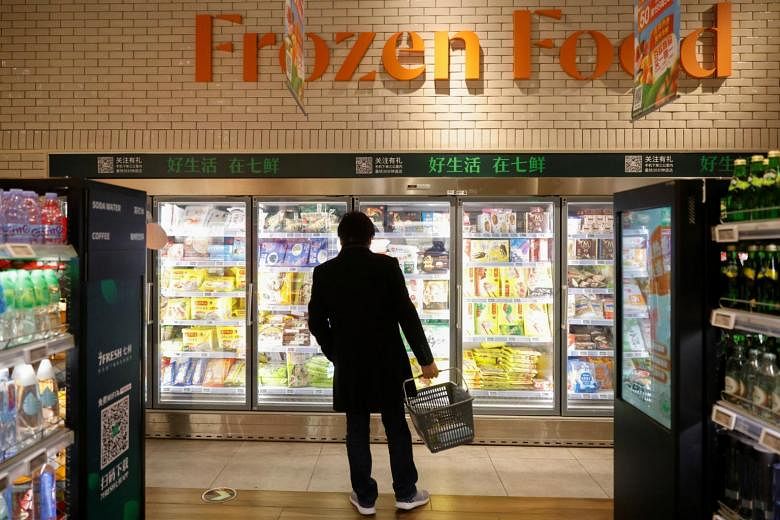BEIJING (CHINA DAILY/ASIA NEWS NETWORK) - China is stepping up measures to prevent the transmission of Covid-19 through imported cold-chain food.
The Ministry of Transport has asked logistics companies to ensure that dock workers are wearing masks when loading and unloading imported cold-chain food cargo, especially from high-risk areas, Mr Sun Wenjian, spokesman for the ministry, said at a news conference on Friday (Nov 27), adding that it is to protect front-line workers' safety.
"When carrying and moving imported cold-chain food cargo, workers are asked to avoid putting goods close to their faces and not touching their mouths and noses. They are forbidden from opening food wrapping to prevent potential contact with the virus," he said.
The strict safety protocols are to protect front-line workers including drivers, porters and maritime workers, who are at a high risk of being exposed to the coronavirus.
Logistics companies are required to record and monitor the health status of front-line workers, providing them with protective equipment, conducting regular nucleic acid tests and intensifying disinfection, Mr Sun said.
Thorough disinfection is required on transportation vehicles and ships before and after transportation.
More frequent disinfection should be carried out on surfaces such as door handles and steering wheels.
The interiors of vehicles, ships and containers that loaded imported cold-chain food must go through thorough disinfection.
Detailed information registration is required to trace the imported cold-chain food, he added. Logistics companies must register information about every step, including the source of the products, transport tools, drivers, maritime workers and dockworkers. Companies are forbidden from carrying cargo that cannot be traced to its source.
Mr Sun also said that logistics companies must draw up an emergency plan in the event a sample tests positive for the virus.
In mid-November, the ministry released a guideline to instruct the daily work of logistics companies and staff members when handling imported cold-chain foods to prevent the transmission of Covid-19.
It has also urged regulators for civil aviation, railway and logistics to draw up regulations about imported cold-chain food transportation to prevent Covid-19.
Recent confirmed cases in China have been associated with imported frozen food. Efforts have been made to stop the virus from rebounding.











